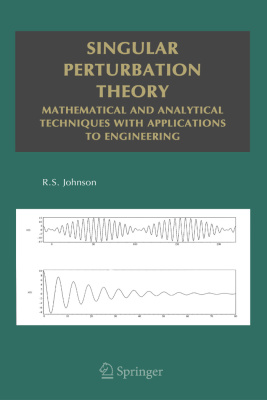Springer, 2005. - 308 pages.
The theory of singular perturbations has evolved as a response to the need to find approximate solutions (in an analytical form) to complex problems. Typically, such problems are expressed in terms of differential equations which contain at least one small parameter, and they can arise in many fields: fluid mechanics, particle physics, and combustion processes, to name but three.
The theory of singular perturbations has evolved as a response to the need to find approximate solutions (in an analytical form) to complex problems. Typically, such problems are expressed in terms of differential equations which contain at least one small parameter, and they can arise in many fields: fluid mechanics, particle physics, and combustion processes, to name but three.

